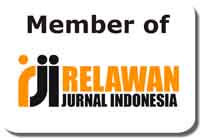Exploring EFL Writing Teacher Confidence as A Response to Emergency Remote Teaching: A Preliminary Survey using TPACK Framework
Abstract
Keywords
Full Text:
PDFReferences
Amin, F. M., & Sundari, H. (2020). EFL students’ preferences on digital platforms during emergency remote teaching: Video conference, lms, or messenger application? Studies in English Language and Education, 7(2). https://doi.org/10.24815/siele.v7i2.16929
Anderson, A., Barham, N., & Northcote, M. (2013). Using the TPACK framework to unite disciplines in online learning. Australasian Journal of Educational Technology, 29(4), 549–565. https://doi.org/10.14742/ajet.24
Atmojo, A. E. P., & Nugroho, A. (2020). EFL classes must go online! Teaching activities and challenges during COVID-19 pandemic in Indonesia. Register Journal, 13(1), 49–76. https://doi.org/10.18326/rgt.v13i1.49-76
Baser, D., Kopcha, T. J., & Ozden, M. Y. (2016). Developing a technological pedagogical content knowledge (TPACK) assessment for preservice teachers learning to teach English as a foreign language. Computer Assisted Language Learning, 29(4), 749–764. https://doi.org/10.1080/09588221.2015.1047456
Cahyani, H., & Cahyono, B. Y. (2012). Teachers’ attitudes and technology Use in Indonesian EFL Classrooms. TEFLIN Journal, 23(2), 130–148. https://doi.org/10.15639/teflinjournal.v23i2/130-148
Chalhoub-Deville, M. (2001). Language testing and technology: Past and future. Language Learning and Technology, 5(2), 95–98.
Chen, C.-L. A. (2012). Extended implications of technology in second language teaching and learning. Teachers College, Columbia University Working Papers in TESOL & Applied Linguistics, 11(2), 27–28.
Cox, S., & Graham, C. R. (2009). Diagramming TPACK in practice: Using an elaborated model of the tpack framework to analyze and depict teacher knowledge. TechTrends, 53(5), 60–69. https://doi.org/10.1007/s11528-009-0327-1
Ekrem, S., & Recep, C. (2014). Examining preservice EFL teachers’ TPACK competencies in Turkey. Journal of Educators Online, 11(2), 1–22.
Elas, N. I. B., Majid, F. B. A., & Narasuman, S. Al. (2019). Development of Technological Pedagogical Content Knowledge (TPACK) for English teachers: The validity and reliability. International Journal of Emerging Technologies in Learning, 14(20), 18–33. https://doi.org/10.3991/ijet.v14i20.11456
Ertmer, P. A., & Ottenbreit-Leftwich, A. T. (2010). Teacher technology change: How knowledge, confidence, beliefs, and culture intersect. Journal of Research on Technology in Education, 42(3), 255–284. https://doi.org/10.1080/15391523.2010.10782551
Fraenkel, J. R., & Wallen, N. E. (2009). How to design and evaluate research in education (seventh). McGraw-Hill Higher Education. https://doi.org/10.1017/CBO9781107415324.004
Fraenkel, J. R., Wallen, N. E., & Hyun, H. H. (2009). How to desing and evaluate research in education. In Mc Graw Hill (Vol. 4, Issue 3). http://marefateadyan.nashriyat.ir/node/150
Francom, G. M. (2020). Barriers to technology integration: A time-series survey study. Journal of Research on Technology in Education, 52(1), 1–16. https://doi.org/10.1080/15391523.2019.1679055
Hodges, C., Moore, S., Lockee, B., Trust, T., & Bond, A. (2020). The difference between emergency remote teaching and online learning. Educause Review, 7.
Jimenez-Silva, M., Olson, K., & Jimenez Hernandez, N. (2012). The confidence to teach english language learners: Exploring coursework’s role in developing preservice teachers’ efficacy. Teacher Educator, 47(1), 9–28. https://doi.org/10.1080/08878730.2011.632471
Joo, Y. J., Park, S., & Lim, E. (2018). Factors influencing preservice teachers’ intention to use technology. Journal of Educational Technology & Society, 21(3), 48–59. http://www.jstor.org/stable/26458506
Kessler, G., & Plakans, L. (2008). Does teachers’ confidence with CALL equal innovative and integrated use? Computer Assisted Language Learning, 21(3), 269–282. https://doi.org/10.1080/09588220802090303
Lee, I., & Yuan, R. (Eric). (2020). Understanding L2 writing teacher expertise. Journal of Second Language Writing, January, 1–12. https://doi.org/10.1016/j.jslw.2020.100755
Niess, M. L. (2011). Investigating TPACK: Knowledge growth in teaching with technology. Journal of Educational Computing Research, 44(3), 299–317. https://doi.org/10.2190/EC.44.3.c
Nolan, A., & Molla, T. (2017). Teacher confidence and professional capital. Teaching and Teacher Education, 62, 10–18.
O’Neill, S., & Stephenson, J. (2012). Does classroom management coursework influence pre-service teachers’ perceived preparedness or confidence? Teaching and Teacher Education, 28(8), 1131–1143. https://doi.org/10.1016/j.tate.2012.06.008
Postareff, L., & Lindblom-Ylänne, S. (2011). Emotions and confidence within teaching in higher education. Studies in Higher Education, 36(7), 799–813. https://doi.org/10.1080/03075079.2010.483279
Skehan, P. (2003). Computer assisted language learning focus on form, tasks, and technology focus on form, tasks, and technology. Computer Assisted Language Learning, 16(5), 391–411. https://doi.org/10.1076/call.16.5.391.29489
Tai, H. C., Pan, M. Y., & Lee, B. O. (2015). Applying technological Pedagogical and Content Knowledge (TPACK) model to develop an online English writing course for nursing students. Nurse Education Today, 35(6), 782–788. https://doi.org/10.1016/j.nedt.2015.02.016
Vanek, E. P., Snyder, C. W., Hull, A. L., & Hekelman, F. P. (1996). The relationship between teachers’ confidence and use of clinical teaching skills in ambulatory care settings. Teaching and Learning in Medicine, 8(3), 137–141. https://doi.org/10.1080/10401339609539783
Wichadee, S. (2011). Professional development: A path to success for EFL teachers. Contemporary Issues in Education Research, 4(5), 13–22.
Willis, J., Weiser, B., & Smith, D. (2016). Increasing teacher confidence in teaching and technology use through vicarious experiences within an environmental education context. Applied Environmental Education and Communication, 15(3), 199–213. https://doi.org/10.1080/1533015X.2016.1181013
Wong, J., Baars, M., Davis, D., Van Der Zee, T., Houben, G. J., & Paas, F. (2019). Supporting self-regulated learning in online learning environments and MOOCs: A systematic review. International Journal of Human-Computer Interaction, 35(4–5), 356–373. https://doi.org/10.1080/10447318.2018.1543084
Wu, Y. T., & Wang, A. Y. (2015). Technological, pedagogical, and cContent knowledge in teaching English as a foreign language: Representation of primary teachers of English in Taiwan. Asia-Pacific Education Researcher, 24(3), 525–533. https://doi.org/10.1007/s40299-015-0240-7
DOI: http://dx.doi.org/10.31332/lkw.v7i2.2761
Copyright (c) 2021 Nur Syamsiah, Hanna Sundari, Fakhrurrazi M. Amin, Anita Anita

This work is licensed under a Creative Commons Attribution-ShareAlike 4.0 International License.
Langkawi: Journal of The Association for Arabic and English indexed by:


















.png)
.png)

.png)
2.png)








